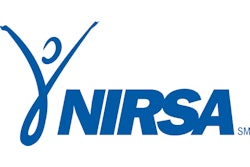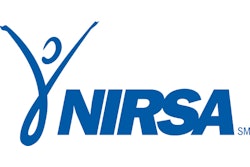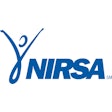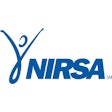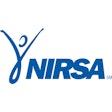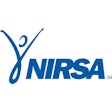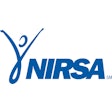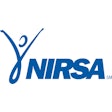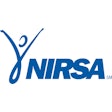This article originally appeared in the October 1985 issue of AB.
“The free enterprise system is being threatened, our businesses are being threatened and the poor are not being served.”
So says Frank Eisenzimmer, and that’s why he and 25 other athletic club owners in the Pacific Northwest are challenging the property-tax and income-tax exemptions of the local YMCA.
Eisenzimmer is chairman of the 26-member Northwest Alliance for Market Equality and owner of the Cascade Athletic Club in the Portland, Ore., suburb of Gresham.
Eisenzimmer is chairman of the 26-member Northwest Alliance for Market Equality and owner of the Cascade Athletic Club in the Portland, Ore., suburb of Gresham.
Eisenzimmer and his colleagues have gained the attention of Multnomah County Assessor C.E. Sheffield, who declared his intention last May to place the YMCA of Columbia-Willamette Inc. on the county tax rolls, retroactive to 1979.
The ruling could cost the local YMCA as much as $1.2 million in current and back taxes.
YMCA Disputes Assessor’s Claim
The YMCA, which operates the Metro Fitness Center and two other facilities in Portland, as well as a youth camp nearby, has already filed arguments in opposition and Sheffield is reviewing the documents. He is expected to rule on the exemption this fall.
Local YMCA officials have consistently declined to comment on the case until Sheffield makes his decision, but the Portland Oregonian reported that the YMCA disputed Sheffield’s original finding that the organization spent only $4,400 on the disadvantaged, saying that the correct figure is $735,000. YMCA officials also point to a 1984 IRS ruling that considered promoting public health a charitable activity.
‘YMCA Lost Its Original Mission’
The reason for the campaign is simple, says Eisenzimmer: YMCAs are largely abandoning their charitable efforts and competing head-to-head with private clubs in the fitness business. Their tax-exempt status as charitable organizations, though, gives them an unfair advantage.
“We believe the YMCA has lost its original mission,” says Eisenzimmer. “They’ve gotten into the club business, but they want to have their cake and eat it too.
“If they want to run a business like we do, that’s fine; they can build right across the street from me and as long as they play by the same rules I do, I have no complaint,” says Eisenzimmer.
Part of a Larger Conflict
The Oregon campaign is just the latest in a number of efforts by private club owners to restrict tax exemptions for nonprofit organizations that compete for the same clients with commercial clubs.
In the late 1970s, for example, the New England Racquet Sports Association persuaded the Massachusetts legislature to pass a bill requiring tax-exempt organizations to pay property taxes on facilities used for public recreation.
YMCAs and Boys Clubs were exempted from the legislation, but Harvard and Brandeis universities, which had offered tennis facilities to the public, were not.
Club owners clearly see nonprofit competition as a challenge. A member survey by the International Racquet Sports Association (IRSA), though not considered conclusive, found that nearly 95 percent had competition from nonprofit recreation centers in their market and 65 percent felt it was adversely affecting their business. Sixty-one percent said the most serious threat was posed by YMCAs.
In an even larger sense, however, the club owners’ efforts are reflections of a scene being played out in many sectors of the economy, as public agencies and charitable organizations struggle to replace depleted budgets with income-producing programs. In doing so, they have often run afoul of private sector businesses, who claim they can’t compete with the lower overhead of the nonprofit sector.
YMCA Has Seen It Before
The Portland case is not the first time YMCAs have encountered challenges to its tax status. In 1982 the national YMCA office began deliberations with the IRS after the agency questioned the exemptions for YMCA fitness centers.
The issue revolved around a 1979 IRS ruling that health clubs operated in conjunction with YMCA-type fitness programs were taxable as an “unrelated business.”
The national YMCA asked for clarification in 1982 and the IRS agreed to conduct a test case on the Springfield, Mass., YMCA, which had a two-tiered fee structure for general members and fitness center members.
In 1984, the IRS concluded that the fitness center was “generally accessible to the community,” qualifying it as a “related” activity and thus exempt from taxes. The IRS also suggested that YMCAs strengthen their case by emphasizing health promotion in their fitness programs.
YMCA officials obviously hope that determination serves as a precedent in other situations, although Oregon officials say they are not bound by IRS rulings.
In 1984 the national YMCA Executive Committee issued a report saying that “competition between for-profit and nonprofit entities is almost inevitable—particularly when a nonprofit designs a program that successfully meets a previously unmet need, or when a for-profit enters a field previously serviced by nonprofits.”
That comment seemed to be a pointed reference to the YMCAs often-stated contention that their health and exercise efforts preceded the so-called fitness movement, which private clubs are now capitalizing on.
“Such competition is not in and of itself inappropriate or unfair,” the report continued, “and may provide valid options for those needing or desiring such services.”
Future YMCA Plans Cause Concern
While conceding that no Portland-area club has yet experienced severe hardship as a result of competition from the YMCA, Eisenzimmer says, “It’s the future that scares the hell out of the private clubs.”
The Alliance got its start in 1984 when Eisenzimmer became concerned about YMCA-announced plans for two more athletic club-like facilities in the Portland area.
Previously, Eisenzimmer and others had been concerned about the YMCA’S Metro Fitness Center, the only one that they felt competed with the private clubs, but say they are alarmed at the YMCA’s future plans, which include another five facilities by the year 2000.
Eisenzimmer says his group is not opposed to YMCAs, as long as they pursue what club owners see as the YMCA’s original purpose.
“I think it’s fine if they charge a fee,” says Eisenzimmer. “They can’t operate on nothing, but I think they should be open to everyone and if someone can’t afford it, they should be allowed in. At the Metro Y, kids can’t get in except on weekends, and that’s limited.”
YMCA policy in most areas provides for “scholarships”—reduced rates for the needy, but Eisenzimmer says the local YMCA provides only 14 percent of its budget to the needy, and only 2.6 percent of its members are on scholarships.
“If the Salvation Army operated like this, they’d be opening hotels and restaurants, and you can bet the hotel and restaurant association wouldn’t sit for that.”
Portland Only the Beginning
Because of the potential impact of Sheffield’s decision, no one expects his ruling to be the final word; the “losing” party can be expected to appeal to higher authorities.
Before the case is over, the Oregon Department of Revenue, the Oregon Tax Court and the Oregon Supreme Court will undoubtedly be involved and, if a constitutional issue can be raised, so might the U.S. Supreme Court.
It’s clear that the club owner see the Portland situation as a test case.
“It will give people who were afraid of challenging the Ys the feeling that it can be done,” says Richard Trant, Jr., of Weston, Mass., former president of the New England Racquet Sports Association.
The national office of the YMCA will undoubtedly be watching the case carefully as well, and Sheffield seems fully aware of the potential importance of the case.
“He’s certainly not going to be whimsical or arbitrary,” says assistant county counsel Paul Mackey. “It’s a very provocative problem for him. He’s encountering an issue that is a first for him and I think for a lot of folks—whether the definition of charitable should be expanded to include services for which people have to pay a fee.
“It really comes down to that simple issue.”



















